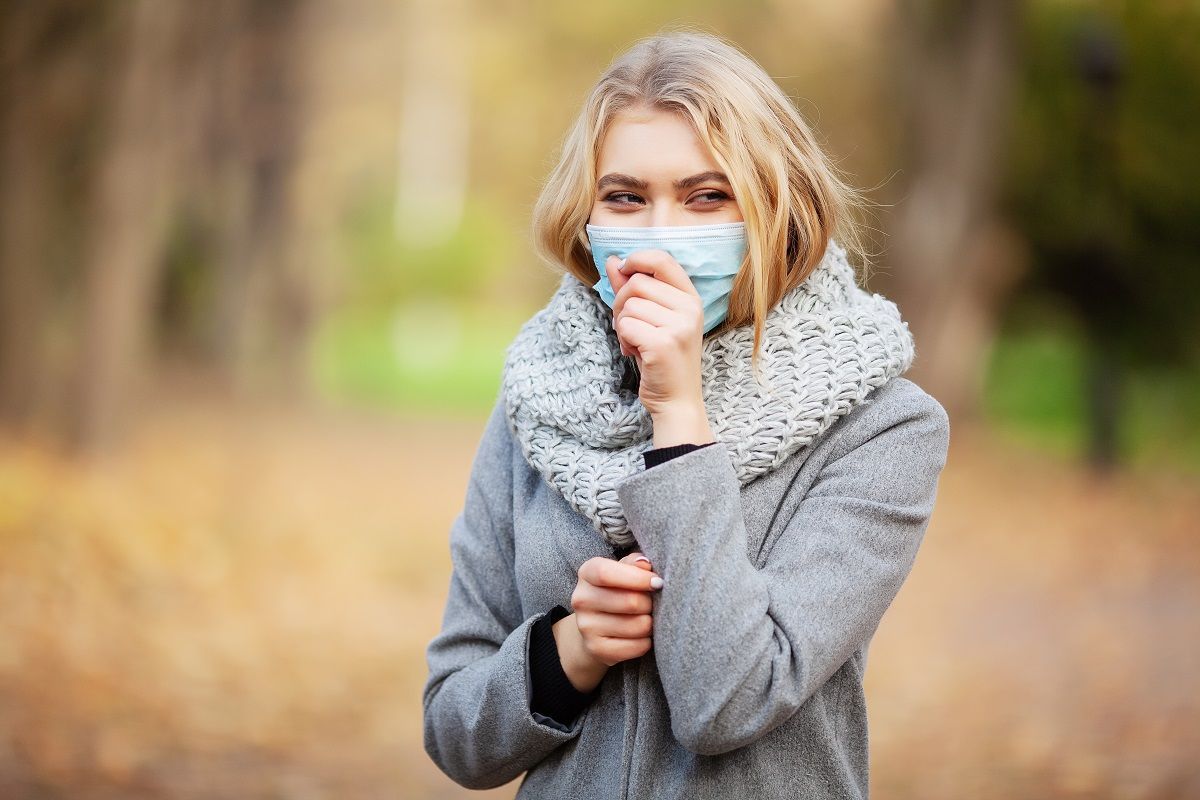
Winter is upon us, and flu season is about to begin once again! A lot of people are unaware of how grave influenza can be. The (Centers for Disease Control and Prevention) CDC reports that between 12,000 and 61,000 people die from the flu each year. Now that schools and businesses are reopening, you should get vaccinated to protect yourself and everyone else.
Furthermore, the influenza virus and the COVID-19 virus will circulate together this fall and winter, posing a severe health risk. This situation is the reason why getting the flu vaccine is more important than ever. Read on to find more information about seasonal flu vaccines.
Basic Facts About the Flu
The flu, also known as influenza, is a viral infection affecting the nose, throat, and respiratory system. The illness is highly contagious and among the most common seasonal diseases around the world. Flu can strike at any time of year, but it is most common in the fall and winter. It typically peaks between December and March.
A person can spread the disease when they sneeze, cough, or talk. Droplets in the air transmit the flu viruses, which other people inhale. People can also contract influenza indirectly by touching their mouths and noses after handling an object containing flu viruses. When food and drinks are shared using the same utensils or cups, transmission can also occur. Flu symptoms occur when the viruses multiply in a person's nose, throat, or lungs.
Symptoms of the Flu
It is worse to catch the flu than to catch a cold. The flu often manifests as the following symptoms:
- Fever
- Chills
- Sore throat
- Nasal congestion or runny nose
- Muscle aches
- Cough
- Headache
- Fatigue
- Diarrhea (most common for children)
Seasonal flu season can affect a person's health differently, and some flu seasons tend to be more severe than others. The most effective defense against flu and its complications is vaccination.
Flu Vaccine for 2021-2022 Season
Flu shots' effects minimize the severity of the symptoms or prevent them altogether. It works by allowing your body to produce antibodies that shield you from infection by influenza viruses. Each year, several virus strains are used to make the flu vaccine, called candidate vaccine viruses (CVVs). The flu vaccine can be given in two different ways: vaccine with needles or nasal spray.
The CDC recommends using any authorized, age-appropriate
flu vaccine this 2021-2022 flu season. Flu vaccine information and age indications are available in
CDC's Table: U.S. Influenza Vaccine Products for the 2021-2022 Season.
The Best Time to Get the Influenza Vaccine
Get it before the flu season starts! The flu vaccine's effectiveness takes about two weeks to reach its peak. So, it is best to get the vaccine in September and early October to provide maximum protection as the flu season progresses. Even if you don't get the vaccine within the recommended period, it doesn't mean you shouldn't. You may still protect yourself against the flu if you get the vaccine later. Flu vaccines are available at any time during the flu season.
Reasons Why You Need to Get the Flu Vaccine
Millions of people get the flu every year. Fortunately, the seasonal flu vaccine significantly reduces the risk of contracting the virus. The flu vaccine offers the best protection against influenza.
Protect Yourself and the Most Vulnerable Groups Against the Flu
The majority of people with the flu suffer from mild symptoms. However, it can be severe and even fatal for some. The flu poses a higher risk of serious complications for some groups. This group includes infants and young children, pregnant women, older adults, and those with compromised immunity and chronic illnesses.
Keep in mind that receiving an influenza vaccine protects those around you. By getting vaccinated, you are helping to protect the health of those around you. Taking practical measures preventing the spread of illness, such as handwashing, covering coughs and sneezes, and staying home when sick helps too.
Avoid Serious Flu Complications
The flu has serious complications, and it can severely compromise your health. There's the risk of ear and sinus infections, bacterial pneumonia, aggravation of chronic illnesses, sepsis, and multi-organ failure. In addition, you may be less likely to catch both influenza and COVID-19 when you get the flu shot. Different viruses are causing these two contagious respiratory illnesses, and contracting both at once can be fatal.
Help Ease the Burden on the Health Care System
During flu season, hospital capacity approaches its peak. Due to Covid-19 overwhelming the health care system, flu hospitalizations will undoubtedly put a tremendous strain on it. Both COVID-19 and flu patients make use of similar medical resources (ventilators, oxygen, ICUs). Hospitals could be swamped if not enough people get the flu vaccine this winter. This is why the CDC and other medical organizations recommend taking an influenza vaccine to prevent a 'twindemic.'
Flu Jabs Are Helpful for Herd Immunity
Influenza vaccination reduces the spread of germs, thus reducing the risk of the flu. Vaccination in large numbers of people develops herd immunity. This way, you can help protect people not eligible for the vaccine, such as infants below six months and those with allergies.
Flu Vaccines Are Safe
U.S. Food and Drug Administration (FDA) prepares and provides the manufacturer with the standardization materials necessary. These standards are the basis for making and verifying the flu vaccine to ensure safety and effectiveness.
In addition, FDA inspectors inspect manufacturing plants regularly and assess vaccines annually. The FDA and the CDC apply these and other methods to ensure vaccine safety before and after administration. Here are some links with more information:
- Vaccine Adverse Event Reporting System (VAERS)
- Vaccine Safety Datalink (VSD)
- Sentinel Post Licensure Rapid Immunization Safety Monitoring (PRISM)
Flu vaccination offers many benefits. Nonetheless, about half of Americans do not get the vaccine, resulting in thousands of hospitalizations and thousands of deaths each year. Vaccinating more people would protect many more people from the flu.
Influenza Vaccination: Frequently Asked Questions
Below is a list of other questions commonly asked and their answers.
Who should receive the flu vaccine?
Except for a few exceptions, everyone six months older should get the flu vaccine every year. Flu jabs are part of routine vaccination schedules for kids, teens, and adults. Getting flu jab is particularly crucial for people who are at high risks, such as:
- Pregnant Women
- Children 6 months and older
- Elderly adults ages 65 and older
- Children and teens who regularly take aspirin
- People with chronic diseases like diabetes, asthma, or cancer
- Caregivers and healthcare professionals
Who is not eligible for a flu shot?
Some groups with certain health conditions are not eligible for flu vaccination. They include:
- Individuals who had a severe allergic reaction to an egg or gelatin component of a flu vaccine
- Infants younger than six months of age
- Individuals with Guillain-Barré syndrome (GBS)- a neurological disorder in which your immune system damages the nerve cells.
- Individuals with a fever on the day of the vaccine shot.
What are the side effects of the vaccine?
You cannot get the flu from a flu shot, nor will the vaccine put you at risk of catching COVID-19. However, there might be some side effects after getting a flu shot or nasal vaccine. They are usually mild and last for just a few hours or days:
- Sore arm on the site of injection
- Slightly higher temperature
- Muscle pain
- Headache
- Feeling queasy
Keep moving your arm or take painkillers, such as paracetamol or ibuprofen to ease the discomfort. Ibuprofen is not suitable for some patients, including pregnant women, unless with a doctor's prescription.
In case of dizziness after the vaccine, tell your doctor. Contact your doctor as soon as you see symptoms of an allergic reaction or trouble breathing. However, the flu vaccine rarely causes these acute side effects.
Is it necessary to get a flu shot every year?
Yes, you must get a yearly shot. Each year, new strains of flu viruses may emerge, so the vaccine is updated to protect against these new viruses. Flu vaccines should contain influenza strains most closely associated with the current season. Moreover, protection from the flu shot received last year may not be adequate to prevent influenza season next year.
Vaccinate and Beat the Flu
Don't let the flu get you down. There is no better way to protect yourself against influenza than with an influenza shot. And even more so now that COVID-19 is still in circulation. To schedule a flu vaccine appointment or for any concerns regarding it, call or book an appointment with us here at Allergy Associates of the Palm Beaches.
Allergy Associates of the Palm Beaches
Allergy Associates of the Palm Beaches | All Rights Reserved.










